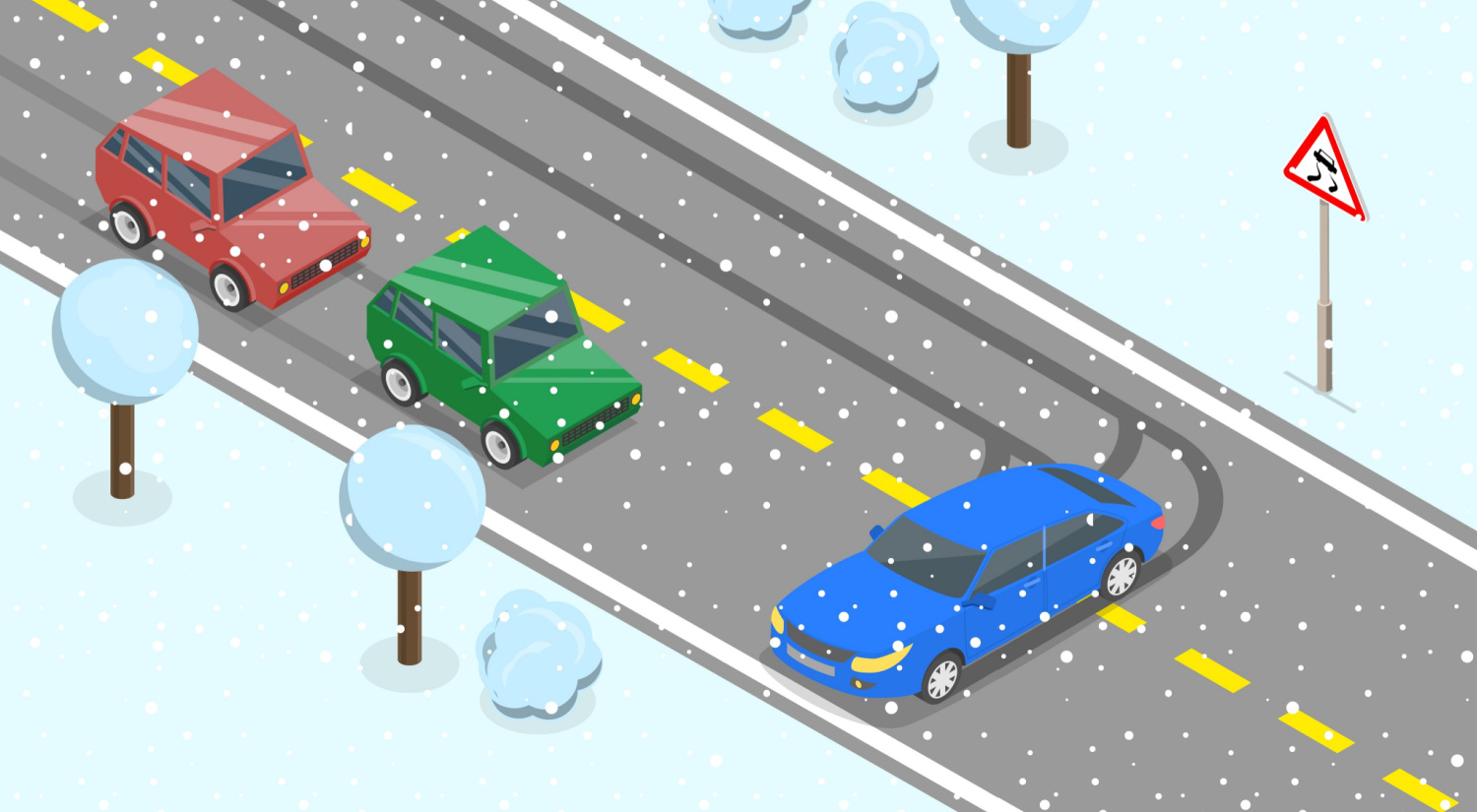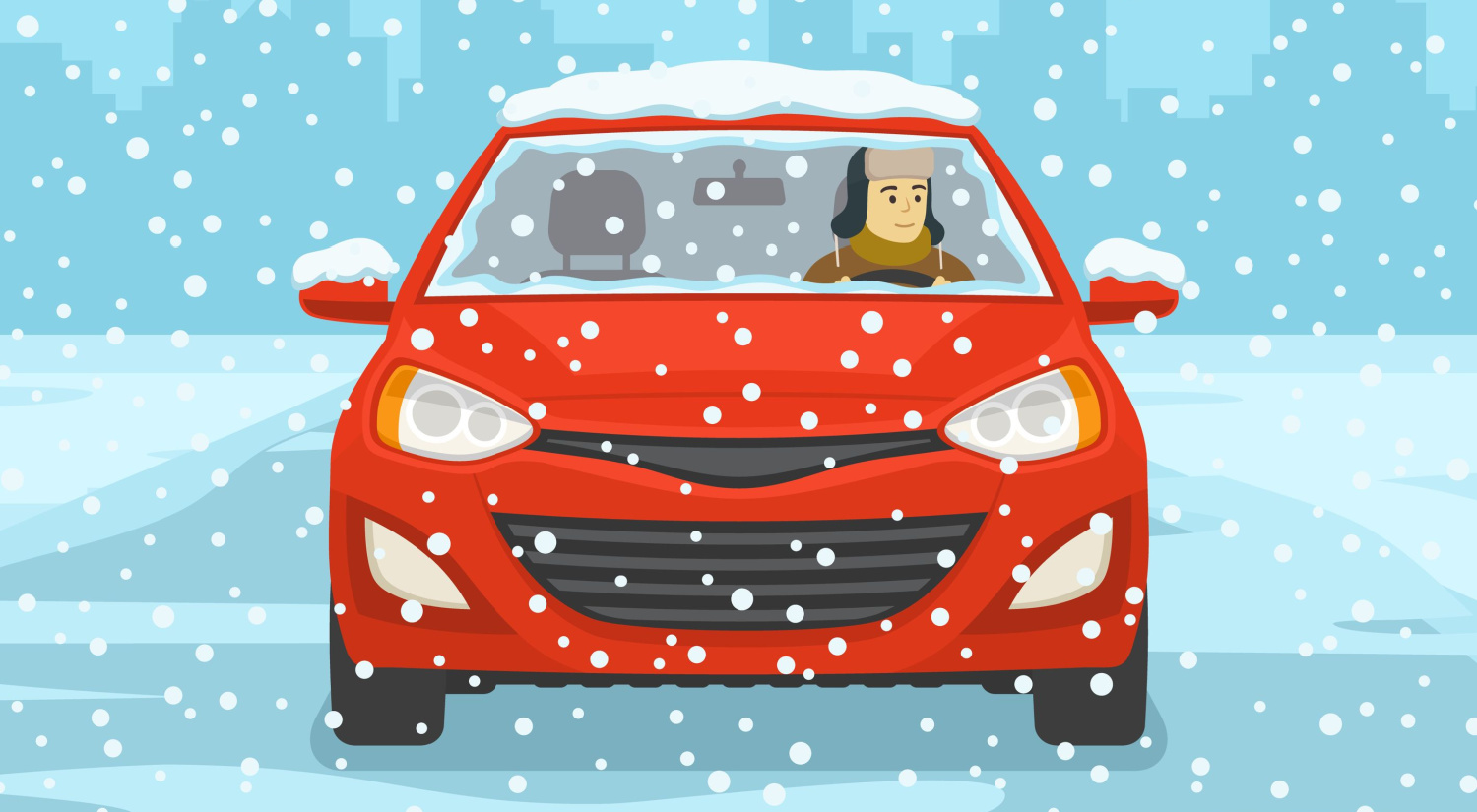
Snow and Ice Accidents: What to Know About Car or Truck Accidents, as well as Slip and Fall Accidents Caused by Snow or Ice
Southern New Jersey experienced a tremendous amount of snowfall today, and we are again reminded that New Jerseyans are no stranger to winter conditions and the difficulty it presents in getting around, whether it be on foot or driving a vehicle. When winter conditions are a factor in a car crash, determining whether the crash was the fault of another party or just an accident can often be tricky. Likewise, where snow or ice is a factor in a slip and fall, it again can be challenging to determine whether the fall resulted from the pedestrian’s failure to observe conditions or the fault of another party for not properly clearing a walkway.
If you have been involved in a car accident or a slip and fall involving icy or snowy conditions, it is highly advised that you seek counsel from a qualified personal injury attorney. Nevertheless, this post will aim to provide an overview of what considerations, at a minimum, should be made.
Loss of Control over a Motor Vehicle Due to Icy or Snowy Conditions

All drivers in New Jersey are required to exercise ordinary caution when driving. Part of that responsibility is driving at a reduced speed and providing more stopping distance between vehicles when driving on wet or icy roads. Black ice can be particularly dangerous, as it can be tough to differentiate from a wet section of the road if it can be seen at all.
However, where an operator loses control of his vehicle due to slippery conditions, he may not necessarily be liable if an accident results. Prior case law, specifically Mockler v. Russman, holds that “[i]f a driver is operating his car as would a reasonably prudent person under the circumstances, he is not to be held negligent merely because his car skidded, resulting in damage or injury to another.” 102 N.J. Super. 582, 587 (App. Div. 1968), certif. denied, 53 N.J. 270 (1969). Instead, the Appellate Division found that while “skidding may be evidence of negligence if it appears that it was caused by the failure of the driver to take reasonable precautions to avoid it, when conditions of which he knew or should have known made such a result probable in the absence of such precautions.” Id. at 587-88. Therefore, under Mockler and New Jersey law, more generally, negligence is not to be found simply because of the happening of an accident, something more must be presented.
The “Mockler” rule was again reiterated in the more recent case of Paramel v. Martinez, 2017 WL 2953336 (App. Div. 2017). There, as the plaintiff was driving over a bridge, the defendant lost control of her vehicle due to a slippery sludge-like substance on the roadway and crossed over into oncoming traffic. Immediately thereafter, a second accident occurred, likewise due to the slippery substance. Police arrived on the scene and, upon observing the slippery substance, shut down the roadway due to its dangerous nature. A later investigation revealed that a third-party truck had discharged hazardous sewage onto the roadway.
Following discovery, defendants in Paramel filed a motion for summary judgment requesting dismissal of the plaintiff’s complaint. The motion judge granted the motion and held that there was no evidence that the defendant was negligent, echoing the holdings of Mockler and reiterating that “the mere happening of an accident does not bespeak negligence.” Ibid.
Therefore, if you have been involved in a car accident where snow or ice may have contributed to the happening of the accident, you are well-advised to speak with an experienced personal injury attorney, as insurance companies know how to defend these types of cases.
Driving with Snow on Your Vehicle

As of 2010, New Jersey motorists are legally obligated to clear ice and snow from their vehicles following a snowstorm. N.J.S.A. 39:4-77.1. Nevertheless, we’ve all seen those “peephole” drivers who have removed just enough snow from their windshield to allow them to see straight. This type of driving is hazardous, as the driver’s field of vision has been dramatically reduced. Consequently, drivers who fail to clear snow from their vehicle can face fines of up to $1,000 for a non-commercial vehicle and $1,500 for a commercial vehicle.
In addition to being extremely dangerous, peephole driving can lead to the snow and ice that was not removed flying off the vehicle while it is moving, which can interfere with another driver’s use of the road. Said interference may result in other drivers’ field of view being obstructed or having to make an evasive maneuver, either of which can result in an accident.
Slip and Falls Caused by Snow or Icy Conditions

New Jersey can be a cold and, in turn, hazardous place following freezing weather. Walking around on sidewalks or through parking lots can become extremely dangerous. While snow and ice are a natural phenomenon, a commercial property owner not only has the duty to remove snow and ice that has accumulated on their premises but further has a duty to inspect their premises. Where a property owner fails to remove and or treat known icy surfaces or fails to inspect the premises, and as a result of that failure, someone is injured, the property owner may be responsible.
A commercial property owner obviously benefits from having sidewalks in front of their businesses and the additional foot traffic they provide. Therefore, the New Jersey Supreme Court expanded the liability of commercial property owners to extend to the sidewalks abutting their business and created a duty requiring commercial property owners to maintain and inspect their premises for defects. Stewart v. 104 Wallace St., Inc., 87 N.J. 146 (1981). This includes the removal of ice and snow. Moore v. Schering Plough, Inc., 328 N.J. Super. 300, 307 (App. Div. 2000).
The Stewart Court further was careful to caution that its holding did not apply to residential properties. Since then, several cases have been decided, each opting not to expand sidewalk liability to residential owners. See, e.g., Dupree v. City of Clifton, 351 N.J. Super. 237 (App. Div. 2002); Luchejko v. City of Hoboken, 207 N.J. 191 (2011).
Like car accidents caused by snowy or icy conditions, insurance companies likewise know how to defend against slip and falls that occur due to snow or icy conditions and will often argue that the fall was due to the injured individual failing to use reasonable caution. Further, in some instances, it may be necessary to retain an expert witness to explain the duties of ice and snow removal. Consequently, you should contact an experienced New Jersey slip and fall attorney if you have been injured in a slip and fall.
Frequently Asked Questions Regarding Snow and Ice Accidents
-
What happens if snow or ice contributed to my car accident?
New Jersey law, specifically Mockler v. Russman, provides that the mere happening of an accident is not enough to prove negligence and that a driver will not be held negligent if he was acting as a reasonably prudent person under the conditions presented. Thus, if an accident occurred on snowy or icy roadways, you are well-advised to speak with an experienced New Jersey personal injury attorney.
-
How many car accidents occur in New Jersey due to bad road conditions?
According to the United States Department of Transportation, each year, 24 percent of weather-related vehicle accidents occur on snowy, slushy, or icy roadways, and 15 percent happen during snowfall or sleet.
During last year’s snow season, New Jersey State Police reported that they had responded to 661 car crashes and come to the aid of 1,050 motorists as of February 2, 2021.
-
Can I sue the government for failing to plow or completely plow a roadway/walkway?
Usually, during a car accident, one driver is "at-fault." However, at times roads have not been adequately maintained and may result in accidents. A roadway that is slick with ice or snow may be very difficult to navigate, and where a crash results, an injured party may have a case against the city, municipality, or state of New Jersey. The government, however, enjoys broad immunities, and the Tort Claims Act can be very difficult to manage. Therefore, drivers are well-advised to speak with an attorney before pursuing a case against the government.
-
What is the statute of limitations for suing the government for failing to plow?
Usually, the statute of limitations for a car accident in New Jersey is two (2) years. However, the time limit is significantly reduced when the government is being sued.
The government has broad immunities to protect public funds, as alluded to previously. One such instance of the different rules applying to the government is the Tort Claims Act, which requires that a Notice of Claim be filed within 90 days when suing a municipality or government entity. Failure to properly file a Notice of Claim within 90 days will, in most cases, bar an injured victim from pursuing a lawsuit against a municipality or government entity. Therefore, it is essential to discuss these types of cases with an experienced personal injury attorney.
Therefore, where a claim is against the government, it becomes even more critical that you speak with an experienced personal injury attorney as soon as possible.
-
Are tire chains or studded snow tires allowed in New Jersey?
Tire chains and studded snow tires offer more traction and can prevent slipping and sliding on snow or ice. However, while many states have outlawed their use due to the potential damage to roadways, New Jersey is not one of those states. Instead, N.J.S.A. 39:3-73 provides that "[m]otor vehicle tires may be fitted with tire chains of reasonable proportions when roads, streets, and highways are slippery…provided, however, that no tire-chains shall be used at any time on improved highways when highway conditions do not make such use necessary for the safety of life or property."
Conclusion
Car accidents and slip and falls that occur due to snow or icy conditions can be tricky cases to prove. As such, if you have suffered injuries as a result of slippery conditions, you are well-advised to contact an experienced New Jersey accident attorney.
If you wish to discuss your legal options, Farrell & Thurman, P.C., offers a variety of convenient ways to schedule a free, no-pressure consultation. You may do so directly on our website (Schedule A Consult), via phone (609-924-1115), or by email (Contact Us).
